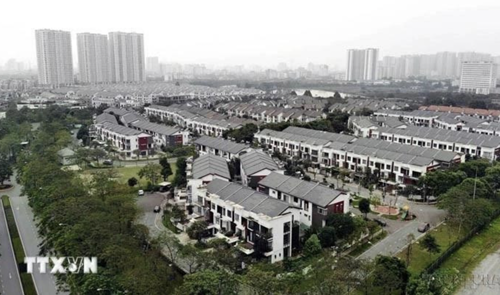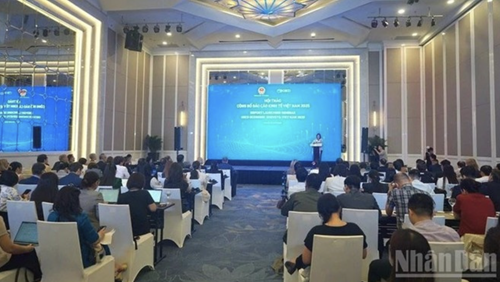Speaking at the event, an MoFA representative praised the efforts of the OECD staff as well as the active coordination of relevant Vietnamese ministries and agencies. The representative thanked the Government of Japan for funding the development of the report, and Australia for accompanying Vietnam as Co-Chair of the OECD Southeast Asia Regional Program (SEARP) for the 2022–2025 period.
    |
 |
|
High-end apartment projects in Gamuda Gardens Urban Area in Ha Noi are developed by Malaysian real estate group Gamuda Land. |
Alongside the organization’s Multidimensional Review of Vietnam in 2020, the reports for 2023 and 2025 serve as objective and valuable reference sources for strategic and policy planners, researchers, and managers in both the public and private sectors of Vietnam, as well as the country’s development partners. These reports are also useful for reviewing the implementation of the 2021–2025 Socio-Economic Development Plan and for continuing the implementation of the 2021–2030 Socio-Economic Development Strategy, the representative said.
In a congratulatory message to the event, OECD Secretary-General Mathias Cormann praised Vietnam’s socio-economic development achievements, including its rapid economic growth, deep integration into the global economy, and significant progress in poverty reduction. The OECD leader reaffirmed his support and commitment to continuing to assist Vietnam in achieving its high growth targets.
The OECD Economic Surveys: Vietnam 2025 report focuses on analyzing the country’s macroeconomic fundamentals, the impact of international integration on attracting foreign investment and trade, and the country’s prospects for developing a low-carbon economy. The OECD also provides recommendations for Vietnam to further move toward a more integrated, transparent, sustainable, and inclusive economy.
The recommendations emphasize the effective use of macroeconomic tools aimed at achieving a balanced fiscal policy and expanding the tax base; the continued strengthening of the monetary system, credit and interest rate policies, and rational resource allocation; solutions to improve the efficiency of the social welfare system in areas such as wages, health care, and education; and the promotion of the formalization of the informal economic and labor sectors.
    |
 |
|
An overview of the report launching seminar (Photo: nhandan.vn) |
The OECD also advocates for sustainable development through emissions trading systems and the expansion of renewable energy. Additionally, the report includes international best practices and specific measures to enhance the effectiveness of attracting high-quality investment, linked to strengthening domestic capabilities, protecting intellectual property rights, and improving the quality of human resources.
At the seminar, a panel discussion was held, featuring representatives from the OECD, the Chief Economist of the Asian Development Bank (ADB) in Vietnam, the Deputy General Director of Deloitte Vietnam, and the Program Director of the Tony Blair Institute for Global Change in Vietnam.
The speakers focused on discussing solutions to achieve double-digit economic growth, attract high-quality foreign direct investment (FDI) that is well-integrated with the domestic economy, and implement institutional reforms and good governance to enhance the capacity of the public sector.
Source: VNA